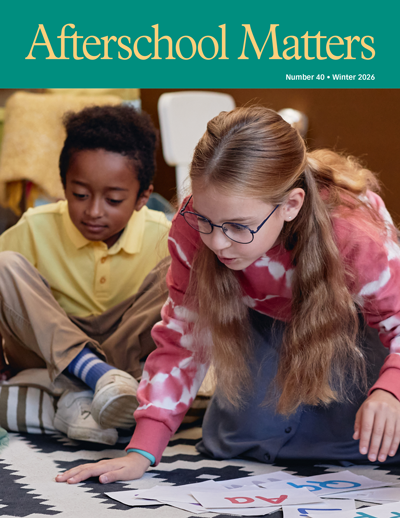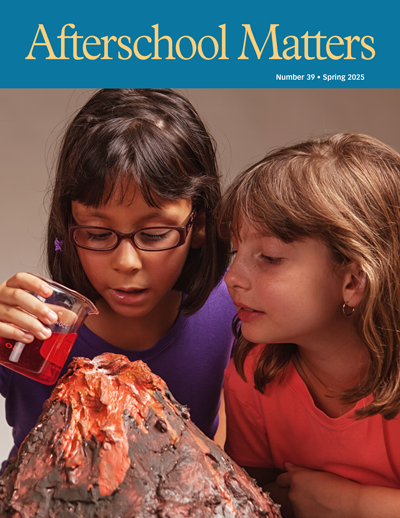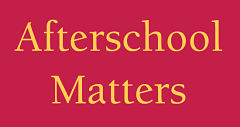By Ruth J. Kaggwa, Precious M. Hardy, Amy M. Leman, Kristine Callis-Duehl, & Kelly Gill
Black staff in out-of-school time (OST) programs are frequently positioned as disciplinarians, behavior managers, or “chaperones,” while curriculum and instruction responsibilities are assigned to formally trained (and often White) educators. Imbalances in power and funding mean White leaders usually hold decision-making authority, while Black frontline staff, typically working part-time, bear most on-the-ground responsibilities (Baldridge et al., 2024). These staff may be positioned as cultural brokers and natural mentors to youth who share their racial identity, but their capacity otherwise remains underutilized (Cherfas et al., 2021).
Continue Reading
By Andrés Forero Cuervo, Daniel Morrison, & Alessandra Pantano
Out-of-school time (OST) science, technology, engineering, and math (STEM) programs have gained recognition for their potential to enhance youth engagement, motivation, and skills by addressing young people’s needs for autonomy, competence, and connection (Faust & Kuperminc, 2020; Hoffman et al., 2021; Mulvey et al., 2023; Yu et al., 2022; Yu et al., 2020). These programs, particularly when they combine academic and social focuses, can significantly impact student interest in STEM, with middle school being an optimal stage for intervention (Young, Ortiz, & Young, 2017).
Continue Reading
How to Scale Up an Afterschool STEM Program
By Pendred Noyce, Laura Martin, Jacob Sagrans, & Jan Mokros
Quickly disseminating an innovative, timely afterschool program raises challenges, from recruitment and professional development to assessment, program fidelity, and quality. In this paper, we describe our experience as project developers, trainers, and researchers working with an afterschool network, Imagine Science, to disseminate a middle school club program about epidemic diseases and data. What we learned from working with this network may be useful to others who have created an afterschool science, technology, engineering, and mathematics (STEM) program they hope to spread widely.
Continue Reading
Participant Insights 30 Years Later
By Lili Zhou
Out-of-school learning contexts provide rich opportunities for authentic and experiential learning, connecting learners with real-world experiences and allowing them to explore socialization into their collective identities, such as gender, race, and the intersection of the two (e.g., Cooper, 2011). However, one challenge lies in the variability of informal educators’ expertise and vision. The qualifications and experience of informal educators can vary widely, and limited research exists on their professional competencies, the pedagogical approaches they use, or the long-term vision they bring to programs (Allen & Crowley, 2014; Jeffs & Smith, 2021).
Continue Reading
By Sanlyn Buxner, Erin Turner, Ricardo Valerdi, Seneca B. Miller, & Christina Baze
In sports, youth are coached to see persistence and hard work as important paths to personal improvement and success. They come to understand through practice that mistakes are tools to help them improve and that collaboration and teamwork are keys to success in team sports (Kovács & Szakál, 2024; Rottensteiner et al., 2015).
Continue Reading
Book Review
By Shannon Macalingay
Review of Built for More: The Role of Out-of-School Time in Preparing Youth for the Future of Work, edited by Byron Sanders & Shannon Epner. Information Age, 2024.
Continue Reading



